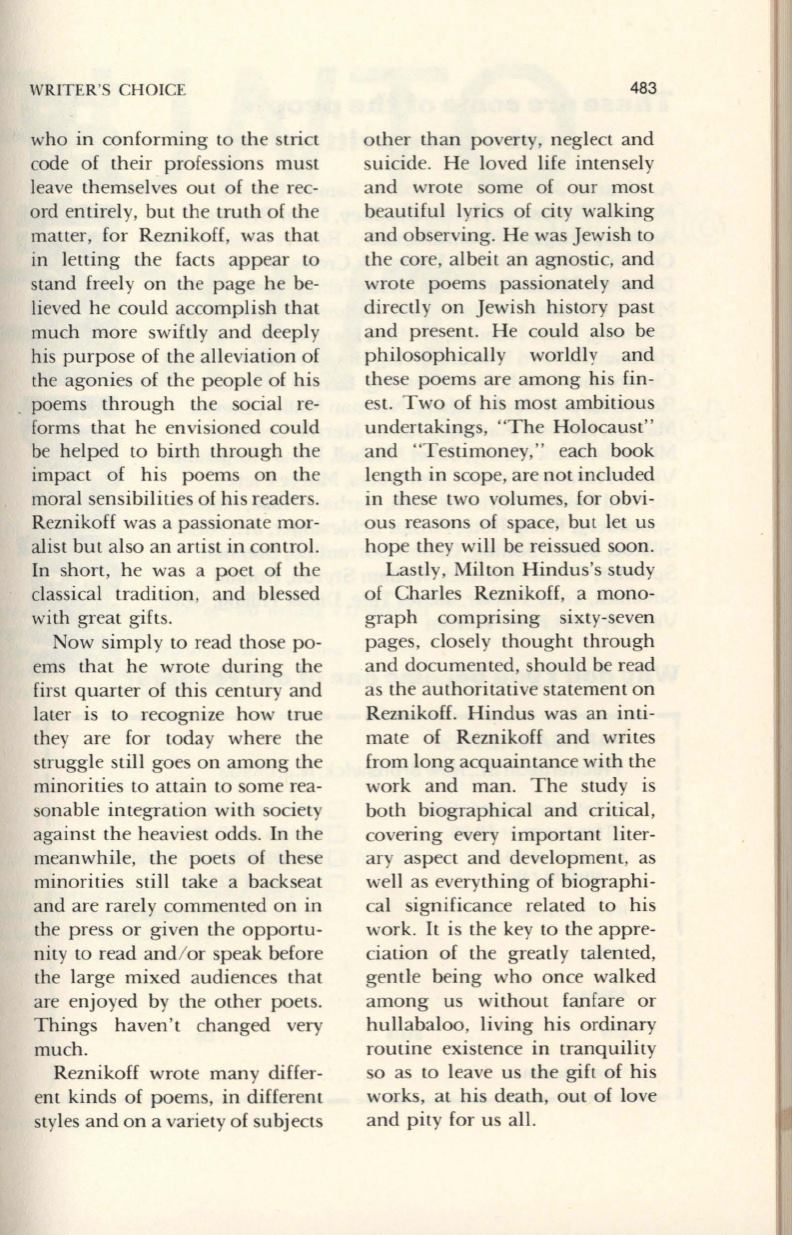
WRITER'S CHOICE
who in conforming to the strict
code of their professions must
leave themselves out of the rec–
ord entirely, but the truth of the
matter, for Reznikof[, was that
in letting the facts appear to
stand freely on the page he be–
lieved he could accomplish that
much more swiftly and deeply
his purpose of the alleviation of
the agonies of the people of his
_ poems through the social re–
forms that he envisioned could
be helped to birth through the
impact of his poems on the
moral sensibilities of his readers.
Reznikoff was a passionate mor–
alist but also an artist in control.
In short, he was a poet of the
classical tradition, and blessed
with great gifts.
Now simply
to
read those po–
ems that he wrote during the
first quarter of this century and
later is to recognize how true
they are for today where the
struggle still goes on among the
minorities to attain
to
some rea–
sonable integration with society
against the heaviest odds. In the
meanwhile, the poets of these
minorities still take a backseat
and are rarely commented on in
the press or given the opportu–
nity to read and/ or speak before
the large mixed audiences that
are enjoyed by the other poets.
Things haven't changed very
much.
Reznikoff wrote many differ–
ent kinds of poems, in different
styles and on a variety of subjects
483
other than poverty, neglect and
suicide. He loved life intensely
and wrote some of our most
beautiful lyrics of city walking
and observing. He was Jewish to
the core, albeit an agnostic, and
wrote poems passionately and
directly on Jewish history past
and present. He could also be
philosophically worldly and
these poems are among his fin–
est. Two of his most ambitious
undertakings, "The Holocaust"
and "Testimoney," each book
length in scope, are not included
in these two volumes, for obvi–
ous reasons of space, but let us
hope they will be reissued soon.
Lastly, Milton Hindus's study
of Charles Reznikoff, a mono–
graph comprising sixty-seven
pages, closely thought through
and documented, should be read
as the authoritative statement on
Reznikoff. Hindus was an inti–
mate of Reznikoff and writes
from long acquaintance with the
work and man. The study is
both biographical and critical,
covering every important liter–
ary aspect and development, as
well as everything of biographi–
cal significance related
to
his
work.
It
is the key to the appre–
ciation of the greatly talented,
gentle being who once walked
among us without fanfare or
hullabaloo, living his ordinary
routine existence in tranquility
so as to leave us the gift of his
works, at his death, out of love
and pity for us all.


